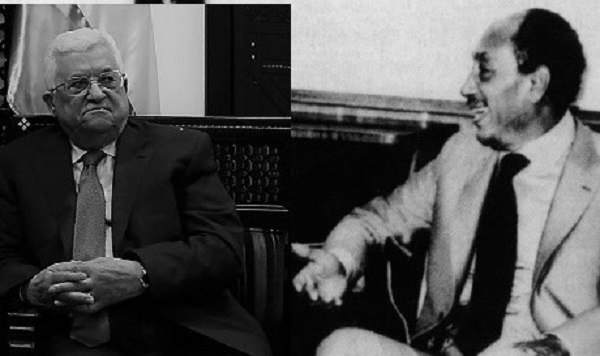Marking 40 years since Anwar Sadat helped usher in a historic peace accord, Prime Minister Netanyahu contrasted the former Egyptian president’s willingness to end conflict with the Palestinians’ recalcitrance.
By: Jack Ben-David
Prime Minister Benjamin Netanyahu said Tuesday he regretted the fact that he had not yet met the Palestinian version of former Egyptian president Anwar Sadat, who signed a peace accord with Menachem Begin in 1979, and who “had a desire to end the conflict.”
Addressing the Knesset Plenum to mark 40 years since Sadat departed for an historic journey to Jerusalem to kick-start peace talks with Israel, departing from a long-standing policy of institutionalized animosity toward the Jewish state, Netanyahu expressed his “sincere regret, (that) I have not yet come across the Palestinian Sadat who will declare his desire to end the conflict, who will recognize the State of Israel in any borders, whatever they may be, and will support our right to live in peace and security.”
Highlighting the changes that are sweeping the Middle East, and seemingly referencing the bolstered, albeit clandestine, relations between Israel and Saudi Arabia, Netanyahu implied that Sadat’s decision to normalize relations may be emulated.
“Today, four decades after his visit to Israel, in many parts of the Arab world they understand well, not only what happened here 40 years ago, but what can happen in light of changes that are taking place in the region,” Netanyahu said to the almost-empty plenum, attended by only two ministers from the government.
Lamenting the fact that Sadat’s achievements of peace had resulted in his assassination, the prime minister hailed his legacy, manifested by a peace agreement that has endured to the present day.
Peace with Egypt ‘Remains Robust’
“Sadat fell as a martyr, but the peace remained robust,” Netanyahu continued, while simultaneously acknowledging the difficulties which have accompanied its history.
“The peace with Egypt has had its ups and downs but it succeeded during the era of Mubarak’s regime and after,” he proudly stated.
However, Netanyahu spelled out what he said remain the prerequisite criteria for forging a peace deal with the Palestinians.
“There is a condition for peace and that is Israel’s strength. In the Middle East, alliances are made with the strong and not with the weak. ‘I have come to make peace with a strong leader,’ is what he would say,” Netanyahu said about the principle that had led Sadat to undertake the momentous trip to Jerusalem.
Nevertheless, Netanyahu bemoaned the fact that Palestinians have not followed suit, contrasting Sadat’s willingness to recognize Israel with what he said was the Palestinians’ persistent refusal.
“I have declared more than once that Israel is a permanent fact. First of all, we deserve the recognition of our existence and afterwards of our right to exists. That is how Sadat was, unlike our Palestinian neighbors who, to this day, refuse to recognize the State of Israel’s right to exist,” Netanyahu said.
Chairman of the Opposition, Isaac Herzog ascended the podium after Netanyahu where he lauded Sadat and Begin as brave leaders who took “unprecedented actions.”
“He came without buts, without maybes, and he shocked the world so much that he was forced to open his speech by saying that it was not a military or political tactic,” Herzog said.
While defending Sadat and Begin’s legacy, Herzog also went on the offensive, telling Netanyahu that a Palestinian Sadat was not all that was missing from the modern quest for peace.
“We don’t only need a Palestinian Sadat, we also need an Israeli Begin,” Herzog said.
Turning directly to Netanyahu, Herzog added: “I already said two weeks ago in the plenum, if you were in the place of Menachem Begin, I doubt you would show the same bravery Menachem Begin displayed at the time.”
Speaking after Herzog, Speaker of the Knesset Yuli Edelstein began his remarks by expressing his disappointment with the fact that between 20 and 30 MKs had not attended the special plenum.
“They are in the building, but it is beneath their honor to enter the gathering,” Edelstein sardonically vented. “There are those who entered the Knesset, but it was difficult for them to complete the final meters and come in.”





